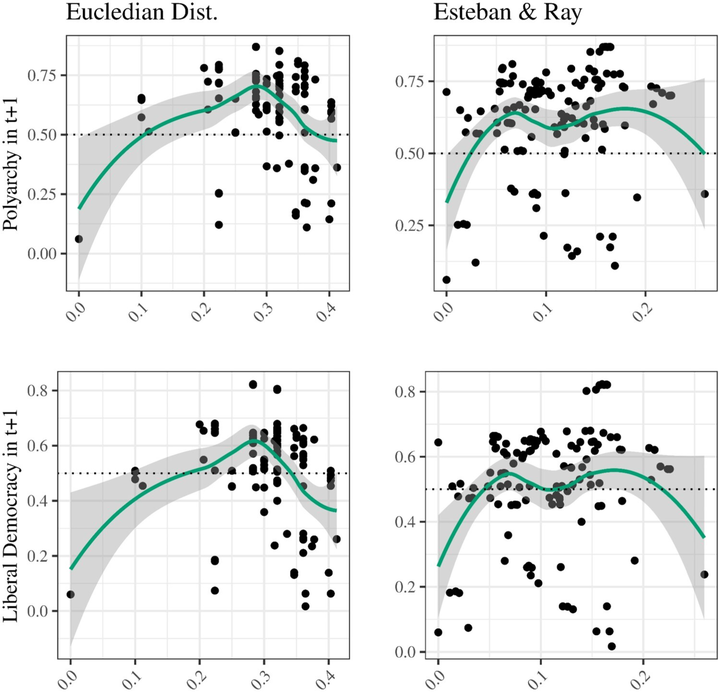
Abstract
Around the world, democracy seems to be under threat. Polarization is considered a key culprit. In this study, we return the focus to ideological party system polarization, which we conceptualize as multidimensional, encompassing different policy dimensions. Theoretically, we argue that the effect of polarization on democracy is neither linear nor unconditional. Both high and low levels of polarization have deleterious consequences for democracy, particularly at low levels of fragmentation. When voters cannot meaningfully distinguish between government and opposition, democracies are as threatened as when political opponents represent fundamentally different ideologies. Finally, we introduce novel data on election outcomes and party positions in 25 European interwar democracies, an understudied period in which many Western democracies failed. Our observational analysis supports the predicted inverted U-curve relationship between ideological polarization and democracy, as well as its conditional nature on low party fragmentation.